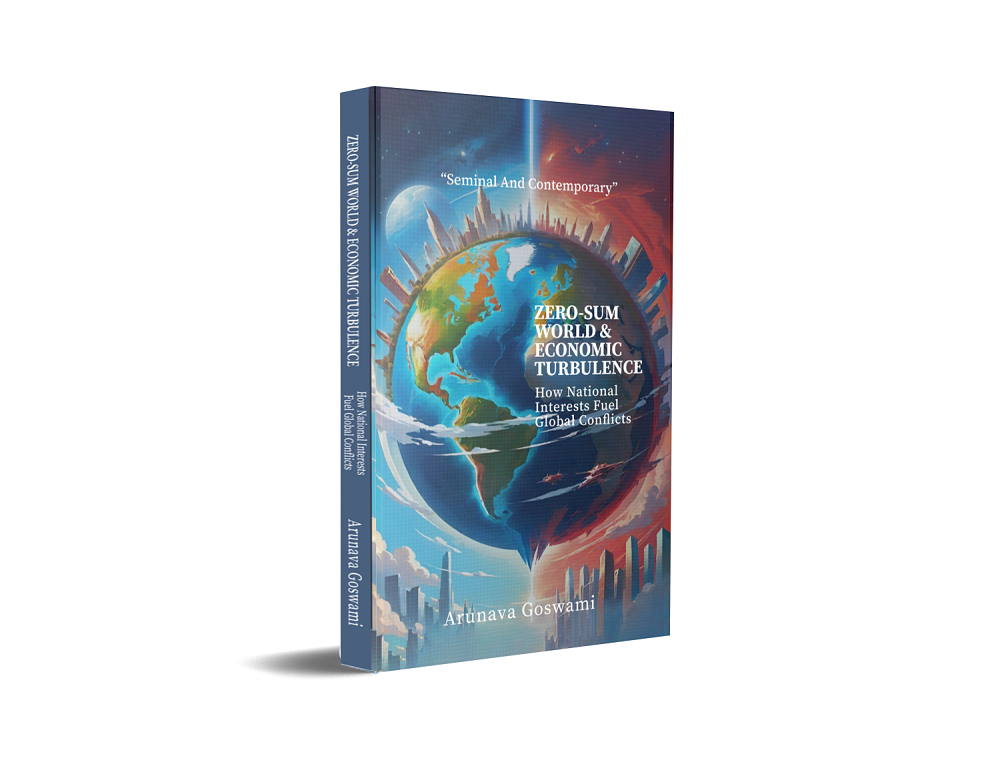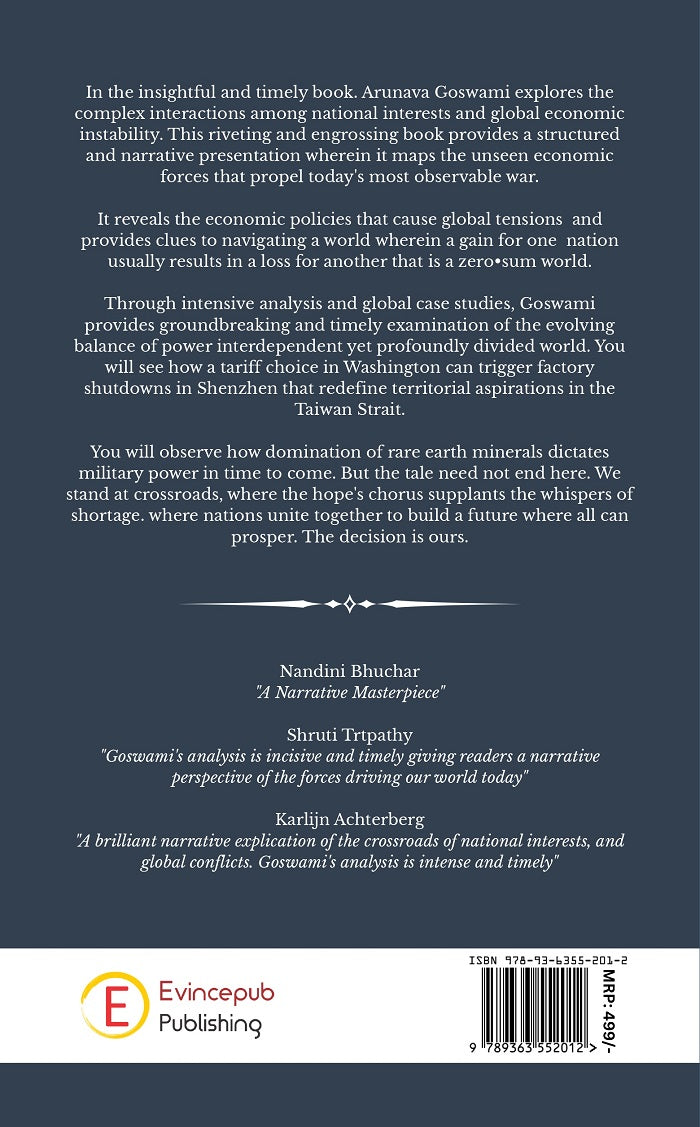Evincepub Publishing
Zero-Sum World And Economic Turbulence: How National Interests Fuel Global Conflicts
Zero-Sum World And Economic Turbulence: How National Interests Fuel Global Conflicts
Couldn't load pickup availability
Author : Arunava Goswami
Preface
The preface of Zero-Sum World and Economic Turbulence explores how the mindset that one nation’s success means another’s loss fuel global conflicts and economic instability. Combining the author’s strategic planning expertise with personal stories, biblical insights, and popular culture references like Harry Potter, the book makes complex international issues accessible. Through detailed case studies, it reveals how zero-sum thinking blocks cooperation and worsens crises like climate change. The author thanks his family and colleagues for their support. The preface invites readers to discover paths from rivalry to collaboration in solving global challenges.
SYNOPSIS
With dwindling resources driving an increase in nationalism, the book illustrates how global wealth is disintegrating and erstwhile economic allies are now battling for existence. This shift indicates the emergence of a zero-sum mindset, where nations increasingly think that their success relies on the shortcomings of others, exacerbating economic instability and conflict. The narrative explores the possibility of achieving cooperative, mutually beneficial solutions, or if conflicts inevitably lead to winners and losers.
The study examines historical and contemporary conflicts that emphasize the detrimental impacts of zero-sum mentality via several case analyses. It has been shown that trade wars and economic protectionism hinder global commerce, with “America First” strategies causing supply chain interruptions and rising costs. The breakdown of conventional international organizations and the emergence of new economic blocs like BRICS represent changing alliances as nations pursue options beyond Western-led frameworks and capitalize on their influence over resources and technology.
Market instability arises from power conflicts, which are increasingly defined by national security concerns overshadowing economic logic. As countries attempt to display power despite their weaknesses, defense expenditures rise even during economic decline. Struggles for resources and power can escalate into overt aggression, as highlighted by geopolitical tensions such as the Russia-Ukraine war, the militarization of the South China Sea, and the competition for Greenland’s mineral wealth.
The narrative shows how, in response to conflicts over trade and security, Europe is restoring its strategic autonomy and avoiding American control. The mineral riches, colonial histories, and evolving situations in Africa suggest that only a select few can attain wealth, which further fuels conflict. The complexity of global power dynamics is increased by China’s maritime ambitions and France’s waning influence over African states. The story similarly demonstrates how zero-sum mentality heightens rivalry for shared resources, like water in the Nile basin and land in Central Asia, often resulting in diplomatic isolation and unforeseen consequences. The competition for lithium in South America demonstrates how the race for key resources can elevate local players to the global arena.
The text concludes by noting the fragmentation of international cooperation, with rising tariffs, technological decoupling, and new economic blocs undermining decades of integration. Even with a degree of hope for eventual reintegration, the price of conflict as opposed to cooperation is significant. The addendum addresses the shift from efficiency to resilience in the face of trade wars and the quiet revolution in monetary order as nations experiment with alternatives to the dollar. Finally, the book represents a critical juncture: countries can opt to stay on a course of contention and division or to select collaboration to create a more fruitful and secure global order.
Share




